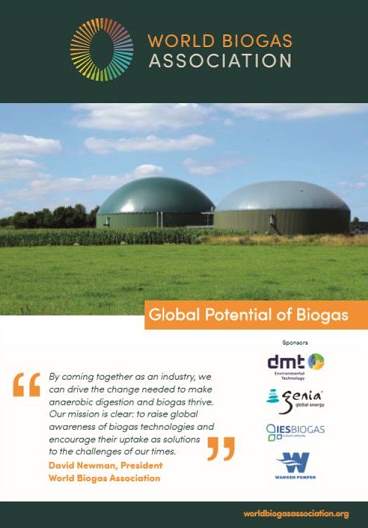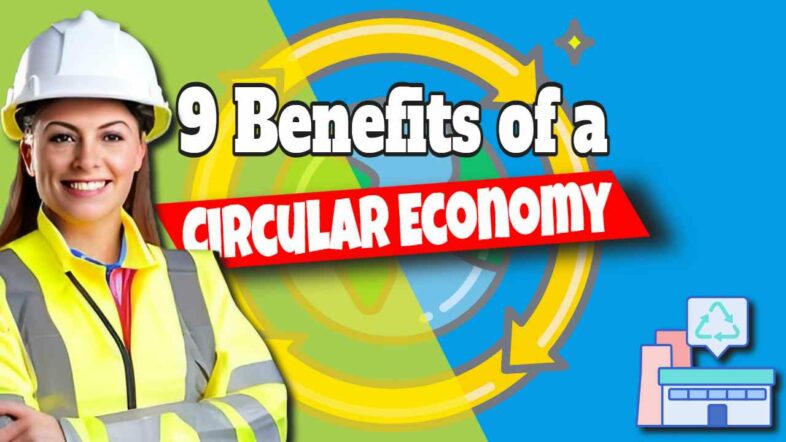The circular economy is an increasingly popular concept with many sustainability advantages that are gaining traction within many industries. In this blog post, we will explore the 7 main benefits of the circular economy and how it can help businesses to operate more sustainably and efficiently.
We will look at how the circular economy can reduce waste, increase sustainability, and help businesses to reduce their environmental impact. We will also examine how it can help to create jobs, reduce costs, and increase competitiveness.
Ultimately, the circular economy provides a framework for businesses to increase their efficiency, reduce their environmental impact, and become more sustainable.
Benefits of a Circular Economy
Here are nine benefits of a circular economy:
1. Reduced Waste: A circular economy reduces the waste created by using fewer natural or mined resources and materials.
2. Increased Product Lifespan: In a circular economy, products are designed to last longer and be reused for multiple purposes. This increases the lifespan of products and reduces the need for replacements.
3. Encourages Repair and Recycling: A circular economy encourages product reuse, repair, and recycling. By making it easier to repair and recycle products, businesses and consumers can help reduce their impact on the environment.
4. Lower Production and Manufacturing Costs: By using fewer resources, the cost of production and manufacturing is lowered. This helps businesses save money and allows them to invest in more sustainable practices.
5. Increases Efficiency: A circular economy increases efficiency by reusing and recycling resources and materials. This helps to reduce energy usage and CO2 emissions, which can help businesses to become more sustainable.
6. Creates New Opportunities: By utilizing existing resources and materials, new opportunities are created for businesses to innovate and develop symbiotic relationships. Doing things differently helps to create more jobs and to fuel economic growth.
7. Enhances Community Involvement: A circular economy forces manufacturers to find sources of materials to repurpose and reuse from within the existing economy. Instead of constantly looking outward for new resources for their raw material supply businesses and individuals must work together. This creates a business environment more in touch with local communities for the betterment of communities. This helps to promote more balanced social equity.
8. Creates a Healthier Environment: By reducing waste and the resources used, there are fewer emissions produced, so a circular economy helps to create a healthier environment. This helps to promote the health and well-being of individuals and their communities.
9. Enhances Sustainability: A circular economy helps to create a more sustainable environment by reducing waste, using fewer resources, and encouraging businesses and individuals to work together.
The benefits of a circular economy are clear: reduced waste, increased product lifespan, lower production and manufacturing costs, and enhanced sustainability. By transitioning to a circular economy, businesses and individuals can help reduce their environmental impact and create a more sustainable future.

Unfortunately, the continuation of the present status quo is consuming more resources than mother earth can provide. In the following sections, we explain what may happen if we ignore the opportunity that the circular economy movement offers.
The Ugly Truth About Ignoring the Benefits of a Circular Economy
30 July 2019:
Ignoring the Benefits of a Circular Economy would have ugly outcomes for future generations.
The circular economy is the only hope for future generations for whom the current generation must return to using no more than the resources of one planet.

Anaerobic digestion (AD) is at the heart of any circular economy, uniquely providing as it does, the vital function of “organic material recycling with the output of energy”, plus recycling “natural fertiliser”.
No other technology, no matter how high-tech and innovative provides the prospect of doing this right now.
Talk of the “hydrogen economy”, “electric vehicles” and even the “reducing cost of commercial space exploration” as the technology to save us is unrealistic. Sustainable organic waste management is essential.
The idea that we will one day, “transport boundless mineral and water resources to the earth”, misses the point about managing waste, completely.
In a similar way, some also say, why develop biogas plants because batteries and solar panels are dropping in price?
The answer is that none of these technologies has anything to do with solving the challenge of recycling organic waste sustainably.
We are not knocking the benefits of hydrogen power, electric vehicles, solar panels etc. They are needed as well. But, they should not ever be seen as alternatives to anaerobic digestion.
Ignore AD it's part of the benefits of a circular economy and you ignore the fundamental core principles of any circular economy. Lose the current momentum of promises made by the previous government, and it will be too late to avoid hugely damaging climate change.
The ugly truth is that it is quite possible that the new UK government will be hell-bent on wooing the US for a trade deal, and will cease supporting moves toward a “UK circular economy“.
Even when purely thinking at a commercial level, that would be a huge missed opportunity, not only for the AD industry but also for the progress of the circular economy in Europe and an estimated £1trn global market loss for the whole UK waste management industry.
That's the view of this blog.
A similar view is held by ADBA which also said:
“We firmly believe that the UK will NOT meet its Net Zero obligations without strong support for our sector.”
Read the ADBA view in their Press Release below:
ADBA Press Release 2019:
The anaerobic digestion trade association urges UK Government to keep the momentum on building a sustainable, circular economy
Anaerobic digestion (AD) can reduce UK GHG emissions by 5% and help the UK meet its net-zero obligations and Paris Agreement commitments.
- The global AD and biogas industry is only treating 2% of the organic wastes available to produce biogas for power, heat and transport, and bio-fertilisers for farming. The potential for growth is huge.
- Government must urgently put policies in place to support this growth and ensure that:
- we do as much as we can to mitigate the climate crisis,
- we develop a UK supply chain to export to the world,
- we create tens of thousands of new green jobs around the UK.
The UK Anaerobic Digestion and Bioresources Association (ADBA) congratulates the new members of the UK Government on their appointments.
Only a brief reference was made to the environment in the new Prime Minister’s speech, the climate crisis that we face, and the urgency of taking action to meet the UK’s Paris Agreement commitments and achieve net-zero emissions targets by 2050.
We firmly believe that the UK will NOT meet its Net Zero obligations without strong support for our sector (it can reduce emissions in the UK by 5%), which, in addition to addressing climate change, also offers great opportunities to boost the UK economy, from exports to farming resilience post-Brexit and green jobs, and to deliver on the Clean Growth and Resource and Waste Strategies.
 The World Biogas Association, of which ADBA is a founder member, has just published its Global Potential of Biogas report, highlighting the role that anaerobic digestion (AD) and biogas can play in decarbonising multiple sectors (energy, agriculture, transport, urban living, water) and developing a sustainable circular economy worldwide.
The World Biogas Association, of which ADBA is a founder member, has just published its Global Potential of Biogas report, highlighting the role that anaerobic digestion (AD) and biogas can play in decarbonising multiple sectors (energy, agriculture, transport, urban living, water) and developing a sustainable circular economy worldwide.
The AD technology, which treats organic wastes from various sources to produce biogas for electricity, heat, fuel for transport, as well as carbon-free digestate to fertilise the land, is mature and able to treat most biodegradable materials.
Developed to its full potential, the biogas industry could reduce global GHG emissions by 10-13%, and in hard-to-reach sectors such as agriculture, heat and transport. However, it only currently treats 2% of the organic wastes available around the world to generate green gas, power, transport fuel and bio-fertilisers.
There are therefore 98% of biodegradable materials available globally (food waste, waste from farming and sewage systems) that remain untapped. The potential for the sector to grow as an instrument not only for climate change mitigation but also to develop a sustainable circular economy that creates many green jobs, secures energy and agricultural security and boosts export opportunities, is therefore enormous.
 ADBA has been working with the UK Government for many years advising on the policies needed to support the deployment of AD and biogas in the UK and we have been encouraged by the progress made. However, we must not lose momentum at such a critical time for the environment and the economy. Building on current achievements and policy priorities, we are therefore calling for the UK Government to ensure that:
ADBA has been working with the UK Government for many years advising on the policies needed to support the deployment of AD and biogas in the UK and we have been encouraged by the progress made. However, we must not lose momentum at such a critical time for the environment and the economy. Building on current achievements and policy priorities, we are therefore calling for the UK Government to ensure that:
- an ongoing funding system for AD is established,
- there is continued support for the rollout of food waste collections,
- the Agriculture Bill is progressed taking into account ADBA’s recommendations,
- there is sufficient investment in research and innovation to reduce the industry’s dependence on subsidies and ensure it is best able to take advantage of the estimated £1trn global market.
Charlotte Morton, Chief Executive of ADBA, said:
 “In a keynote speech prior to the launch of the WBA report, Niclas Svenningsen, of the UNFCCC Secretariat (UN Climate Change) highlighted the multiple wins that the AD and biogas industry offers to society, and called for biogas to be at the table when the future policies of governments are designed.
“In a keynote speech prior to the launch of the WBA report, Niclas Svenningsen, of the UNFCCC Secretariat (UN Climate Change) highlighted the multiple wins that the AD and biogas industry offers to society, and called for biogas to be at the table when the future policies of governments are designed.
The UK AD industry has grown by more than 350% over the last ten years and the UK has established itself as a world leader in biogas, with UK companies already exporting biogas-related expertise and equipment. Given its world leading expertise, the UK AD industry has a real opportunity to be at the heart of the growing global biogas industry, support the drive to address climate change and create a sustainable circular economy for now and generations to come. We mustn’t miss this opportunity.”
– ADBA Press Release ENDS –
AD Technology Is Not Perfect!
Anaerobic digestion as currently practised has disadvantages in some areas and needs further innovation for greater efficiency optimization.
However, unless and until “hard-to-achieve technologies” such as gasification become viable to replace it for solid waste management, it's the only show in town to solve many aspects of organic waste management.
In time, society may find other ways to carry out most, or all, of the waste management functions that AD can achieve. But, that would only be possible if abundant renewable energy was available at a low cost.
The Need to Act Now on Organic Waste – Waiting for the Perfect Replacement Technology for AD is Not Possible
Abundant renewable energy for alternatives to energy-creating AD may become available at a low cost at some time in the future, but it's not available now and renewable energy supplies are needed for other purposes.
FAQs – Advantages of “Circular Economy”
1. What is a Circular Economy?
A circular economy is a sustainable economic model that aims to minimize waste and promote resource efficiency. It is based on principles of designing out waste and pollution, keeping products and materials in use, and regenerating natural systems.
2. Advantages of Circular Economy
There are several advantages to adopting circular economy practices, including:
- Reduction of waste and environmental impact
- Cost savings for businesses
- Creation of new revenue streams
- Promotion of sustainable practices
3. What are the main goals of a circular economy?
The main goals of a circular economy are to minimize waste, promote resource efficiency, and create a sustainable economy.
4. How can businesses benefit from implementing circular economy practices?
Businesses can benefit from cost savings, increased efficiency, and improved brand reputation by adopting circular economy practices.
5. What are some examples of circular economy initiatives?
Examples include recycling programs, product redesign for longevity, and sharing economy platforms.
6. How does circular economy contribute to environmental sustainability?
Circular economy reduces the consumption of finite resources, minimizes waste generation, and lowers carbon emissions.
7. What role do consumers play in promoting a circular economy?
Consumers can support a circular economy by choosing sustainable products, recycling, and participating in reuse programs.
8. How can governments encourage the adoption of circular economy practices?
Governments can implement policies, provide incentives, and support research and development in circular economy initiatives.
9. What are the challenges of transitioning to a circular economy?
Challenges include changing consumer behaviour, overcoming infrastructure limitations, and shifting business models.
Conclusion
In conclusion, embracing circular economy practices is essential for creating a sustainable future.
By reducing waste, promoting resource efficiency, and fostering innovation, we can build a more resilient and environmentally friendly economy.
Comments are especially welcome to this article! We'd be the first to admit that ours is only one opinion among many on these issues!







